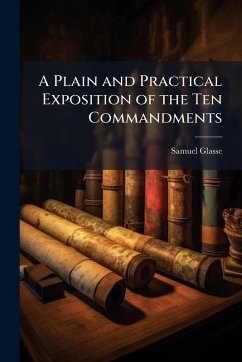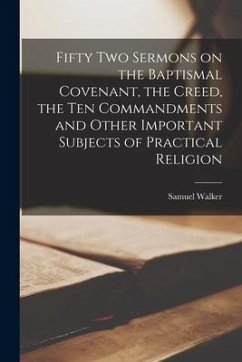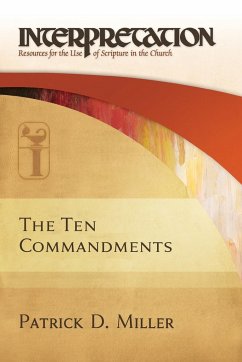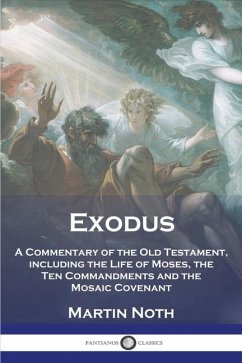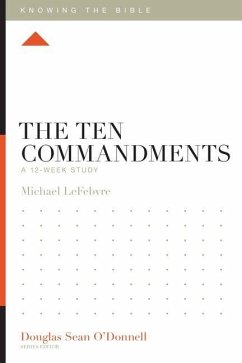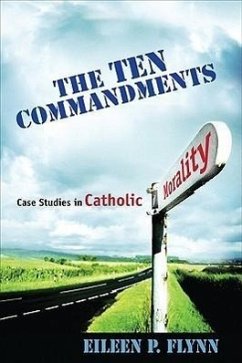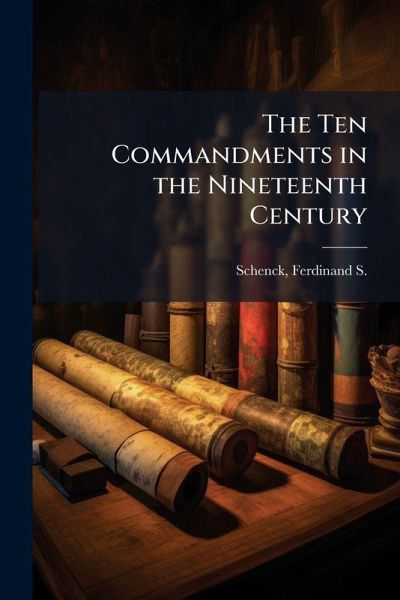
The Ten Commandments in the Nineteenth Century
Versandkostenfrei!
Versandfertig in über 4 Wochen
18,99 €
inkl. MwSt.

PAYBACK Punkte
9 °P sammeln!
"The Ten Commandments in the Nineteenth Century" explores the enduring relevance and interpretation of the Ten Commandments during a period of significant social, intellectual, and religious change. Ferdinand S. Schenck delves into the historical context, examining how these fundamental moral precepts were understood and applied in various spheres of life throughout the 1800s. This study offers insights into the ongoing dialogue between ancient religious texts and modern society, illustrating the commandments' lasting impact on ethics, law, and culture. A valuable resource for those interested...
"The Ten Commandments in the Nineteenth Century" explores the enduring relevance and interpretation of the Ten Commandments during a period of significant social, intellectual, and religious change. Ferdinand S. Schenck delves into the historical context, examining how these fundamental moral precepts were understood and applied in various spheres of life throughout the 1800s. This study offers insights into the ongoing dialogue between ancient religious texts and modern society, illustrating the commandments' lasting impact on ethics, law, and culture. A valuable resource for those interested in religious history, biblical studies, and the evolving role of faith in the modern world. This work has been selected by scholars as being culturally important, and is part of the knowledge base of civilization as we know it. This work was reproduced from the original artifact, and remains as true to the original work as possible. Therefore, you will see the original copyright references, library stamps (as most of these works have been housed in our most important libraries around the world), and other notations in the work. This work is in the public domain in the United States of America, and possibly other nations. Within the United States, you may freely copy and distribute this work, as no entity (individual or corporate) has a copyright on the body of the work. As a reproduction of a historical artifact, this work may contain missing or blurred pages, poor pictures, errant marks, etc. Scholars believe, and we concur, that this work is important enough to be preserved, reproduced, and made generally available to the public. We appreciate your support of the preservation process, and thank you for being an important part of keeping this knowledge alive and relevant.



